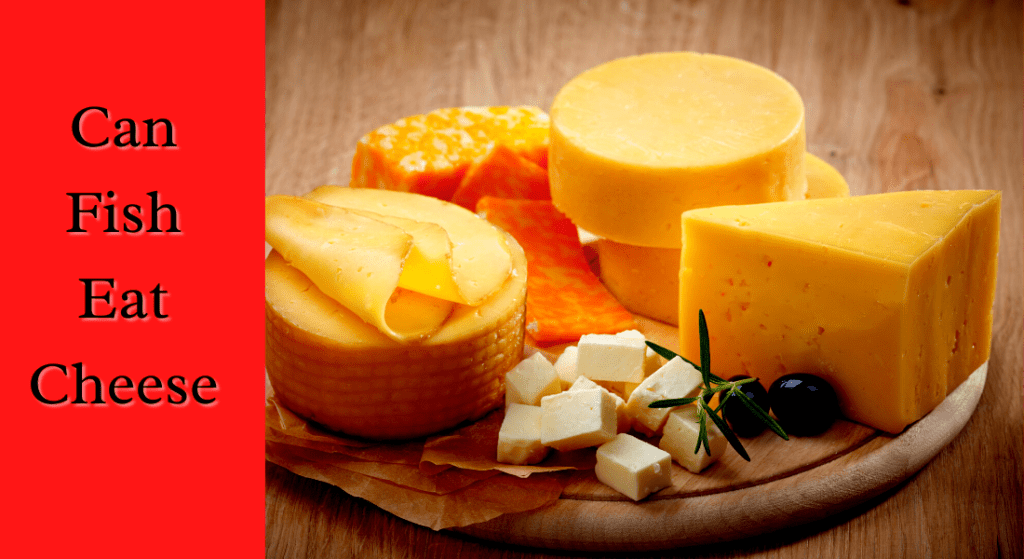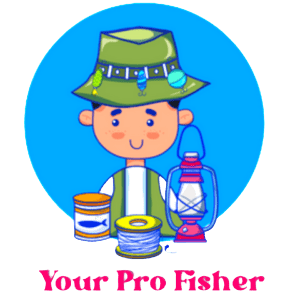Can Fish Eat Cheese? (No, Know Fish Trader Opinion)
My father was a fish trader and as a family, I was involved in this profession. My father has his own 5 fish farming ponds, my responsibility is to feed the fish in 5 ponds according to the routine.
Sometimes I wonder what else the fish can eat. When I got home, I asked my father, “Can fish eat cheese?”.
The answer is no, fish cannot eat cheese because cheese is a dairy product and contains high levels of lactose. Lactose is a disaccharide sugar composed of galactose and glucose units. This type of sugar is not easily digested by fish and can cause digestive problems. In addition, cheese contains high levels of saturated fat which is not good for fish.
I was very happy to get my father’s opinion on this matter. I am sure that there are many other people who have the same question.
Here in this article, I’ll explore everything about how dangerous cheese is for fish And whether can fish eat cheese or not?
What is cheese and why is it dangerous for fish?

Cheese is a dairy product that is made from milk. Milk contains high levels of lactose, which is a disaccharide sugar composed of galactose and glucose units. Lactose is not easily digested by fish and can cause digestive problems.
In addition, cheese contains high levels of saturated fat, which is not good for fish. Cheese can also cause health problems for fish, such as obesity and heart disease.
Is cheese okay for fish?

No, cheese is not okay for fish. Fish Trader Joe says that cheese can give fish a stomachache and it’s best to avoid feeding cheese to fish.
So, there you have it. Cheese is not the best food for fish according to Fish Trader Joe. Avoid giving your fish cheese if you want to keep them healthy and happy!
Can goldfish eat cheese?

No, goldfish cannot eat cheese. Goldfish are a type of fish that is not able to digest dairy products properly.
Studies have shown that goldfish that consume dairy products can suffer from health problems such as swim bladder disease and stomach ulcers.
If you are looking for a healthy treat for your goldfish, consider offering them freeze-dried brine shrimp or bloodworms instead.
Can koi fish eat cheese?
No, koi fish cannot eat cheese. Cheese is not a part of their natural diet and can actually be harmful to them. Koi fish are omnivores, meaning they eat both plants and animals.
Their diet consists mostly of algae, insects, and small crustaceans. While cheese may not kill a koi fish outright, it can cause indigestion and other health problems. It is best to stick to their natural diet and avoid giving them any human food.
How do fish digest cheese?
Fish cannot digest cheese properly because they do not have the enzyme needed to break down lactose. This can cause stomachaches and other digestive problems for fish.
These are the foods that fish usually eat:
- algae
- crustaceans
- worms
- insects
- mollusks
- other fish
Cheese is not a common food for fish and therefore, most fish do not have the enzyme needed to digest it properly. If you give your fish cheese, it is likely that they will experience stomachaches and other digestive problems. They could even die.
It is best to avoid giving cheese to fish. Stick to their usual diet of algae, crustaceans, worms, insects, mollusks, and other fish. Your fish will be much happier and healthier if you do.
What are the health risks for fish that eat cheese?

There are many health risks for fish that eat cheese. Cheese is a dairy product and contains high levels of lactose. Lactose is a disaccharide sugar composed of galactose and glucose units.
1. Cheese is not digested
Fish cannot digest cheese properly because they do not have the enzyme needed to break down lactose. This can cause stomachaches and other digestive problems for fish.
2. Abdominal pain
If fish eat cheese, they may experience abdominal pain because their stomachs are not used to digesting this type of food.
3. Swimming bladder disease
Swimming bladder disease is a common health problem in goldfish that eat cheese. This disease affects the swim bladder, which is an organ that helps fish to float and move through the water.
4. Stomach ulcers
Stomach ulcers are another common health problem in fish that eat cheese. These ulcers can cause bleeding and pain in the stomach.
5. Death
In some cases, fish that eat cheese can die because their stomachs are not able to digest this type of food properly.
Can fish eat other dairy products besides cheese?

No, fish cannot eat other dairy products besides cheese. Dairy products are not a natural food source for fish, and can actually be harmful to them. Fish that eat dairy products can suffer from health problems such as bloating, diarrhea, and constipation.
If you’re interested in feeding your fish a more natural diet, there are many different types of fish food available that will provide them with the nutrients they need. There are also many different ways to prepare fish food so that it is more appealing to your fish.
Talk to a fish trader for more information on natural diets for fish, and the different types of fish food available.
What are some alternatives to feeding cheese to fish?
If you’re looking for a healthy treat for your fish, consider offering them freeze-dried brine shrimp or bloodworms instead.
These treats are high in protein and low in fat, making them a perfect snack for your fish. You can also offer them live food such as worms or insects. Live food is a great way to add variety to your fish’s diet and provide them with the nutrients they need.
Talk to a fish trader for more information on healthy treats for your fish.
Conclusion- can fish eat cheese or not?
Now you know that fish cannot eat cheese because it is not a natural food for them and can actually be harmful to their health.
If you are looking for a healthy and delicious treat for your fish, try one of the many commercial food options that are available. Your fish will thank you!
